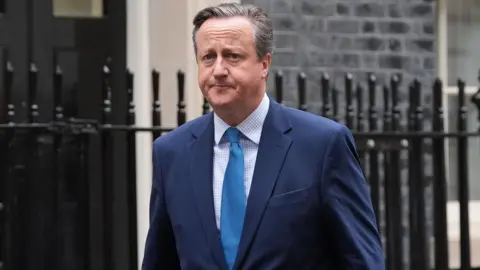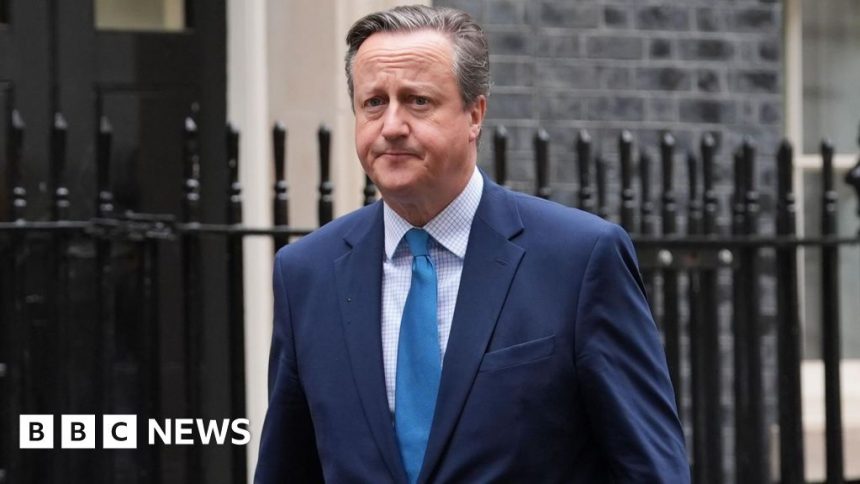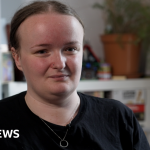Ex-PM David Cameron backs assisted dying bill
 PA Media
PA MediaFormer Prime Minister Lord David Cameron has backed moves to legalise assisted dying for terminally ill adults.
In an op-ed in the Times, Lord Cameron said that while he had opposed moves to legalise assisted dying in the past, he believed the current proposal was “not about ending life, it is about shortening death”.
Previously his main concern had been that “vulnerable people could be pressured into hastening their own deaths”, but he said he believed the current proposal contained “sufficient safeguards” to prevent this.
Lord Cameron becomes the first former prime minister to support the bill after Gordon Brown, Baroness Theresa May, Boris Johnson and Liz Truss all pushed MPs to reject it this week.
Brown, a longstanding critic of assisted dying, told BBC Radio 4’s Sunday programme: “An assisted dying law, however well intended, would alter society’s attitude towards elderly, seriously ill and disabled people, even if only subliminally, and I also fear the caring professions would lose something irreplaceable – their position as exclusively caregivers.”
Brown stood down as MP in 2015 so will not get a vote but his voice still carries weight in the Labour Party.
However Lord Cameron, appointed a peer by Rishi Sunak to serve as foreign secretary, pledged to vote for the bill if it reached the House of Lords.
The Terminally Ill Adults (End of Life) Bill would allow terminally ill people expected to die within six months to seek help to end their life if two doctors and a High Court judge verified they were eligible and had made their decision voluntarily.
Labour MP Kim Leadbeater introduced the bill, saying the “status quo is not fit for purpose” and her proposals could prevent “very harrowing, very distressing deaths”.
Current laws in the UK prevent people from asking for medical help to die.
The bill would require those who apply for assisted dying to:
- Be over the age of 18, a resident in England and Wales and registered with a GP for at least 12 months
- Have the mental capacity to make a choice about ending their life
- Express a “clear, settled and informed” wish, free from coercion or pressure, at every stage of the process.
Writing in The Times, Lord Cameron said: “Many of these safeguards will be familiar from previous proposals.
“But this new Bill protects the vulnerable still further, including by making coercion a criminal offence.”
He added: “Will this law lead to a meaningful reduction in human suffering? I find it very hard to argue that the answer to this question is anything other than ‘yes’.”






